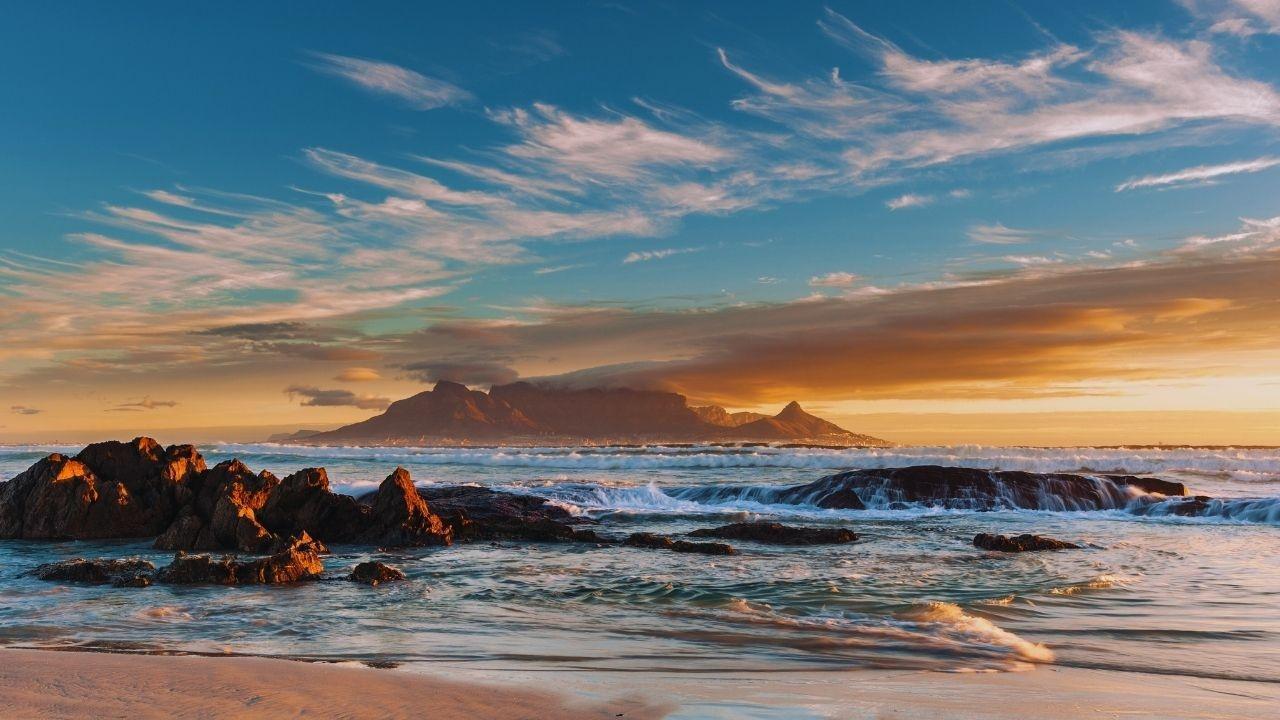You have not yet added any article to your bookmarks!

Join 10k+ people to get notified about new posts, news and tips.
Do not worry we don't spam!

Post by : Anis Farhan
As popular destinations become saturated and itineraries grow crowded, many travellers are shifting their attention to places that remain largely undisturbed. Secluded lakes, distant mountain ranges and tucked-away shores offer privacy, authenticity and a chance to reconnect with nature.
These sites are more than map pins; they slow the pace and invite curiosity. While famous attractions cope with visitor pressure, these quieter spots preserve the restorative experiences that drew people to travel in the first place.
Contemporary travellers increasingly look for meaningful experiences. With a stronger focus on responsible tourism, compact and quiet landscapes are attracting attention. The value of sustainability and calm now rivals the draw of spectacle.
Experts note that directing visitors toward lesser-known locations eases pressure on iconic landmarks and creates new economic possibilities for nearby communities. Thoughtful travel therefore becomes both ethical and enriching.
Overshadowed by its neighbour, Lake Bohinj retains a peaceful alpine atmosphere. Nestled beneath the Julian Alps, its clear waters and surrounding meadows provide ideal conditions for kayaking, wild swimming and scenic walks away from the typical tourist bustle.
Born from a volcanic collapse millennia ago, Crater Lake is North America’s deepest freshwater body with strikingly clear blue depths. It receives fewer visitors than many national parks, offering quiet sunrise views from Watchman Peak.
High in the Himalayas, the Gokyo Lakes form one of the planet’s highest freshwater systems. Because most trekkers stop at Everest Base Camp, these turquoise basins at around 4,700 metres remain comparatively undisturbed, ringed by ice and towering peaks.
Even within a well-known national park, hidden pools and offshoot paths reveal quieter cascades and clear ponds. Wandering beyond main routes rewards travellers with intimate encounters with nature.
Dolpo is among the most secluded Himalayan regions, where ancient monasteries and an austere landscape remain largely untouched. The limited infrastructure helps preserve a sense of isolation and timelessness.
Often eclipsed by other Italian ranges, the Apuan Alps combine rugged limestone ridges with coastal breezes. Hikes here can move quickly from shaded woodlands to sea-facing cliffs, offering striking variety in a single day.
Known as the Dragon Mountains, the Drakensberg’s escarpments hide rock art, soaring cliffs and verdant valleys. Large swathes remain largely undeveloped despite the range’s dramatic landscapes.
Svaneti’s stone towers and remote villages evoke a medieval feel. Winter snows and challenging access have limited development, making it an appealing destination for hikers seeking unspoiled alpine terrain.
While Greece’s famous islands draw huge crowds, Naxos offers quieter coves such as Agiassos—where fishermen still start the day at dawn and evenings close with gentle, crowd-free sunsets.
Situated near a more famous neighbour, Bai Tu Long presents karst islands and emerald waters without the same visitor numbers. Kayaking along its shores reveals floating communities and secluded channels.
In Maharashtra’s Sindhudurg district, Tarkarli is celebrated for clear seas and coral reefs, offering a quieter alternative to India’s more developed beach destinations and good opportunities for diving and wildlife watching.
Hidden within a crater on the Marieta Islands, this sheltered bay is accessible only through a sea tunnel. Its unique setting creates a sense of seclusion rarely found on popular coasts.
Seeking out lesser-visited places is increasingly linked with sustainable choices. In recent years, demand has grown for eco-friendly stays, low-impact itineraries and retreats that emphasise digital minimalism.
Many travellers now prioritise low-footprint practices—staying with local hosts, hiring indigenous guides, and adhering to leave-no-trace principles—to protect fragile landscapes.
Digital mapping and local storytelling have made offbeat routes easier to find while also enabling communities to manage visitors responsibly. Yet wider exposure risks altering the very character that made these places special, so discretion and ethics remain crucial.
Visits to quiet, natural places do more than create postcards—they can restore clarity. Research shows tranquil settings with minimal human interference reduce stress and support creative thinking.
Time spent beside a quiet lake or beneath a vast mountain often brings humility and connection. For many travellers, those insights outweigh the allure of luxury.
Community members are often the best guides to lesser-known spots. Seeking their guidance reveals authentic experiences and channels benefits back to residents.
Visiting before or after peak periods helps avoid crowds and eases pressure on sensitive ecosystems while still offering favourable conditions.
Select lodgings that employ local staff, use renewable resources or invest in conservation. Responsible stays should support, not exploit, host communities.
Many remote sites carry cultural or environmental importance. Staying on marked trails, keeping noise low and packing out waste are simple but vital acts of respect.
Asia: Gokyo Lakes (Nepal), Bai Tu Long Bay (Vietnam), Tarkarli Beach (India)
Europe: Lake Bohinj (Slovenia), Apuan Alps (Italy), Svaneti (Georgia)
Africa: Drakensberg Range (South Africa), Lake Natron (Tanzania)
Americas: Crater Lake (USA), Playa Escondida (Mexico), Valle de Cocora (Colombia)
Oceania: Blue Lake (New Zealand), Whitsundays hidden coves (Australia)
Each of these locations offers a particular kind of stillness that helps travellers reconnect with the natural world.
Increasingly, people select destinations for presence rather than prestige. Off-the-grid locations encourage attentiveness: no constant connectivity, no rigid schedules—just the rhythms of place.
These journeys teach patience and curiosity. Walking more slowly, listening closely, and observing carefully often reveal that wonder grows from exploration, not convenience.
This piece is intended to inform and inspire. Visitors should confirm entry requirements, local guidance and conservation rules before travel. Respect for nature and community is essential when visiting remote sites.










Study Warns Using AI for Medical Advice Is ‘Dangerous’ as Users Get Inaccurate Health Guidance
A major new study reveals that artificial intelligence (AI) chatbots and tools may give misleading o

Top Sci-Fi Movies Streaming on Netflix This February: Must-Watch Picks for Genre Fans
A curated news-style guide to the best science fiction films currently available on Netflix in Febru

BCCI Central Contracts Shake-Up: Kohli, Rohit Moved to Grade B as Board Reshapes 2025–26 List
Virat Kohli and Rohit Sharma have been placed in Grade B in the BCCI’s 2025–26 central contract list

Dalal Street Spotlight: Top 10 Stocks Investors Are Watching as Markets Open on a High
Indian stock markets begin the week with strong momentum, and several blue-chip and mid-cap stocks a

Market Movers Today: Key Stocks Set To Watch In Indian Markets
Indian equity markets are poised for active trading as several major companies, including Bharti Air

Milan Welcomes the World: Inside the Grand Opening Ceremony of the 2026 Winter Olympics
The 2026 Winter Olympics opening ceremony in Milan marked a defining moment for global sport, blendi